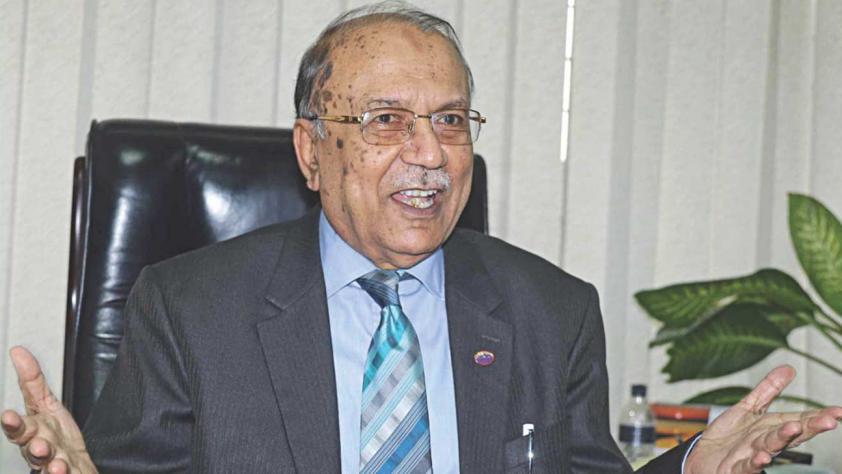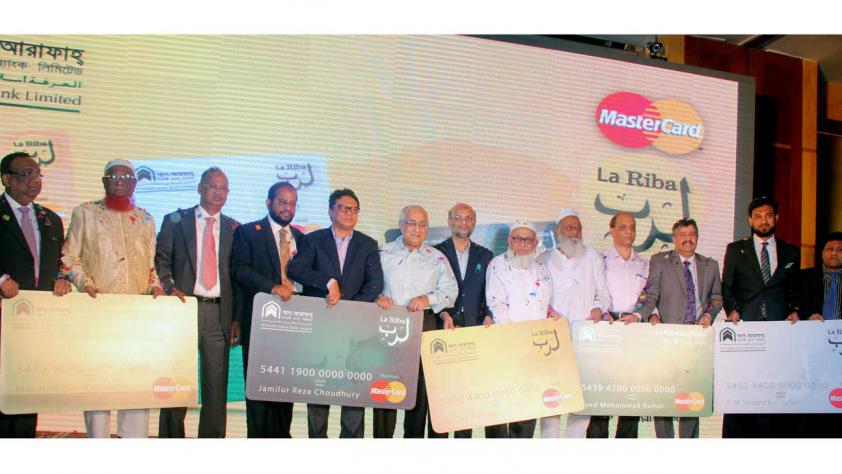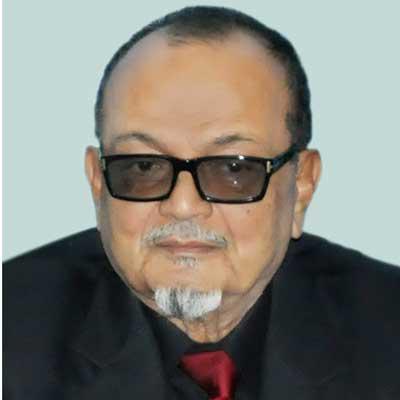AKM Zamir Uddin
Bangladesh Bank is going to introduce a new credit monitoring mechanism for corporate groups in a bid to save the country’s financial sector from unexpected risks and shocks, said officials of the central bank.
Under the new mechanism, the BB will take initiative to introduce a corporate identification number for a group of companies so that banks can identify its (group’s) sister concerns easily.
The central bank will continuously monitor the companies after they receive fresh loans from the banking sector, a BB official told New Age on Sunday.
Large corporate bodies usually take loans from a number of banks in favour of their sister concerns, but currently banks hold only the information of the quality of the loans disbursed by them, he said.
A bank is now in the dark about the situation of the corporate loans which are disbursed by other banks, the official said.
According to the new system, banks will have to provide a corporate identification number for all sister concerns of a corporate group.
A bank will have to send information to the BB if any sister concern of a corporate group faces overdue because of its failure to repay the installment of its loans.
After receiving the information, the central bank will send a letter to all the banks which disbursed loans to the sister concern of the particular corporate group.
Subsequently, the BB will form a syndicate comprising all the credit disbursing banks to the group.
The highest loan providing bank will lead the committee to save the corporate group from a debacle, the BB official said.
A number of corporate groups have recently faced defaulted loans due to their unwise business expansion that also created a risky situation for the country’s banking sector, he said.
The central bank is now collecting data from banks on the quality of their disbursed loans to companies and persons on quarterly basis.
But, banks may have to provide the information on monthly basis so that the central bank will be able to analyse the quality of the loans time to time, the official said.
‘The BB is now conducting its activities lonely to save the corporate groups from any unexpected debacle. After introducing the mechanism, banks will also have to play a role in protecting the companies,’ he said.
Banks usually take information from the BB’s Credit Information Bureau before sanctioning a loan to a corporate group or a person.
But, the CIB is not used to monitor the credit situation of the corporate groups whereas under the new mechanism, the BB will monitor the corporate loans after disbursement using new technique.
The monitoring process of the corporate loans will be conducted online, the BB official said.
The central bank will set up a fresh IT platform to scan the corporate loans and banks will have to provide the data through the platform, he said.
AKM Zamir Uddin
Bangladesh Bank is going to introduce a new credit monitoring mechanism for corporate groups in a bid to save the country’s financial sector from unexpected risks and shocks, said officials of the central bank.
Under the new mechanism, the BB will take initiative to introduce a corporate identification number for a group of companies so that banks can identify its (group’s) sister concerns easily.
The central bank will continuously monitor the companies after they receive fresh loans from the banking sector, a BB official told New Age on Sunday.
Large corporate bodies usually take loans from a number of banks in favour of their sister concerns, but currently banks hold only the information of the quality of the loans disbursed by them, he said.
A bank is now in the dark about the situation of the corporate loans which are disbursed by other banks, the official said.
According to the new system, banks will have to provide a corporate identification number for all sister concerns of a corporate group.
A bank will have to send information to the BB if any sister concern of a corporate group faces overdue because of its failure to repay the installment of its loans.
After receiving the information, the central bank will send a letter to all the banks which disbursed loans to the sister concern of the particular corporate group.
Subsequently, the BB will form a syndicate comprising all the credit disbursing banks to the group.
The highest loan providing bank will lead the committee to save the corporate group from a debacle, the BB official said.
A number of corporate groups have recently faced defaulted loans due to their unwise business expansion that also created a risky situation for the country’s banking sector, he said.
The central bank is now collecting data from banks on the quality of their disbursed loans to companies and persons on quarterly basis.
But, banks may have to provide the information on monthly basis so that the central bank will be able to analyse the quality of the loans time to time, the official said.
‘The BB is now conducting its activities lonely to save the corporate groups from any unexpected debacle. After introducing the mechanism, banks will also have to play a role in protecting the companies,’ he said.
Banks usually take information from the BB’s Credit Information Bureau before sanctioning a loan to a corporate group or a person.
But, the CIB is not used to monitor the credit situation of the corporate groups whereas under the new mechanism, the BB will monitor the corporate loans after disbursement using new technique.
The monitoring process of the corporate loans will be conducted online, the BB official said.
The central bank will set up a fresh IT platform to scan the corporate loans and banks will have to provide the data through the platform, he said.
News:New Age/15-Jun-2015
AKM Zamir Uddin
Bangladesh Bank is going to introduce a new credit monitoring mechanism for corporate groups in a bid to save the country’s financial sector from unexpected risks and shocks, said officials of the central bank.
Under the new mechanism, the BB will take initiative to introduce a corporate identification number for a group of companies so that banks can identify its (group’s) sister concerns easily.
The central bank will continuously monitor the companies after they receive fresh loans from the banking sector, a BB official told New Age on Sunday.
Large corporate bodies usually take loans from a number of banks in favour of their sister concerns, but currently banks hold only the information of the quality of the loans disbursed by them, he said.
A bank is now in the dark about the situation of the corporate loans which are disbursed by other banks, the official said.
According to the new system, banks will have to provide a corporate identification number for all sister concerns of a corporate group.
A bank will have to send information to the BB if any sister concern of a corporate group faces overdue because of its failure to repay the installment of its loans.
After receiving the information, the central bank will send a letter to all the banks which disbursed loans to the sister concern of the particular corporate group.
Subsequently, the BB will form a syndicate comprising all the credit disbursing banks to the group.
The highest loan providing bank will lead the committee to save the corporate group from a debacle, the BB official said.
A number of corporate groups have recently faced defaulted loans due to their unwise business expansion that also created a risky situation for the country’s banking sector, he said.
The central bank is now collecting data from banks on the quality of their disbursed loans to companies and persons on quarterly basis.
But, banks may have to provide the information on monthly basis so that the central bank will be able to analyse the quality of the loans time to time, the official said.
‘The BB is now conducting its activities lonely to save the corporate groups from any unexpected debacle. After introducing the mechanism, banks will also have to play a role in protecting the companies,’ he said.
Banks usually take information from the BB’s Credit Information Bureau before sanctioning a loan to a corporate group or a person.
But, the CIB is not used to monitor the credit situation of the corporate groups whereas under the new mechanism, the BB will monitor the corporate loans after disbursement using new technique.
The monitoring process of the corporate loans will be conducted online, the BB official said.
The central bank will set up a fresh IT platform to scan the corporate loans and banks will have to provide the data through the platform, he said.
The BB will also give directions to the banks through using the IT platform, he added.
- See more at: http://newagebd.net/129419/bb-to-launch-identification-nos-for-corporate-loan-recipients/#sthash.BsuBFUfG.dpuf





 Jamilur Reza Choudhury, vice-chancellor of Asia Pacific University, poses at the launch of MasterCard's Islamic debit, credit and prepaid cards yesterday. Badiur Rahman, chairman of
Jamilur Reza Choudhury, vice-chancellor of Asia Pacific University, poses at the launch of MasterCard's Islamic debit, credit and prepaid cards yesterday. Badiur Rahman, chairman of 
.jpg)